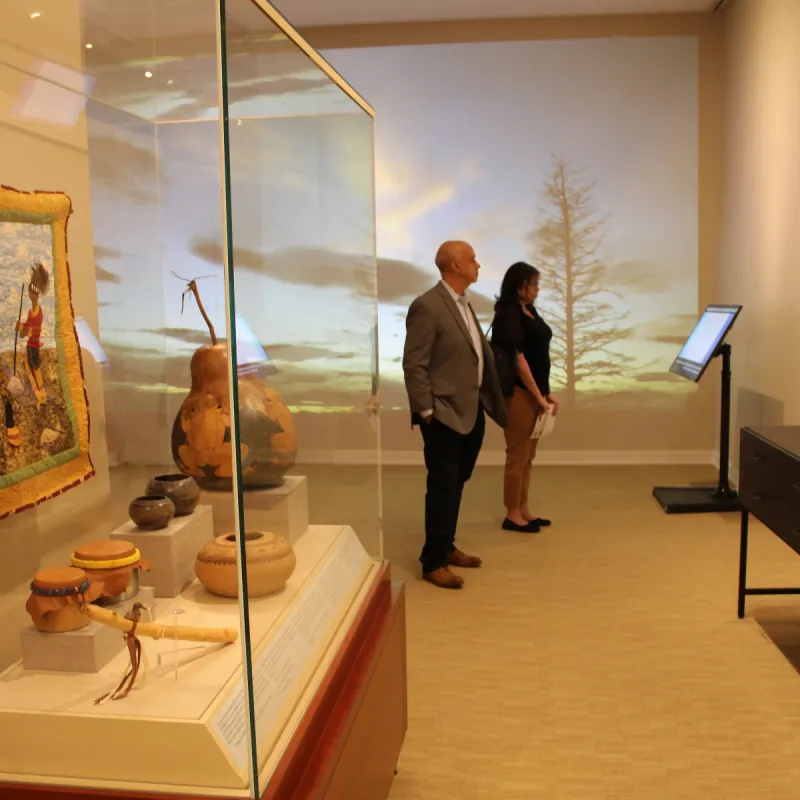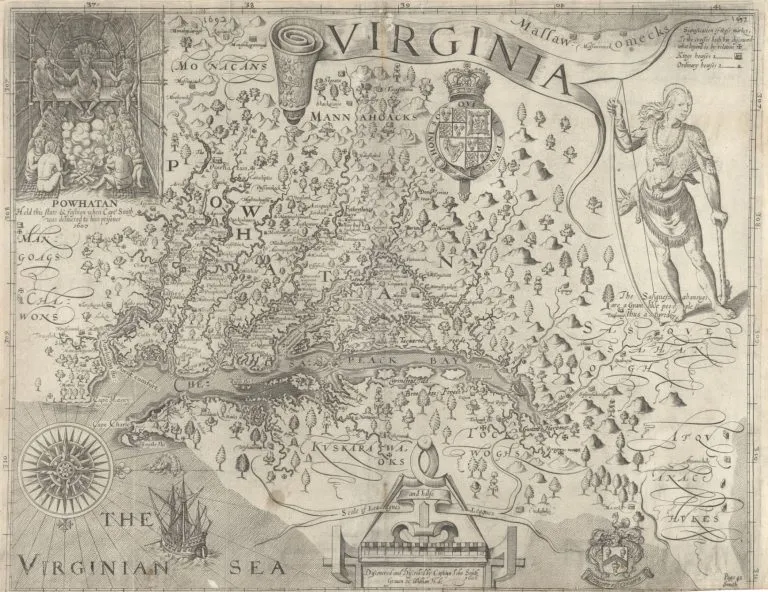
Indigenous Perspectives highlights the commonwealth’s Indigenous history and how the tribes remain a vital part of Virginia today.
The exhibition on view from Dec. 5, 2023 to Aug. 17, 2024, explored the voices and experiences of Virginia’s tribal communities.
View the schedule for the Indigenous Perspectives traveling exhibition to see if it’s coming to a library near you.
Explore the Tribal Voices page to hear citizens of Virginia’s federally and state-recognized tribes reflect on themes of tribal culture, identity, resistance, sovereignty, the land and environment, and the future for their tribes.
Visit our Exhibition Events page to watch recordings of panel discussions and book talks.
Visit our Indigenous Perspectives – For Educators page to see more educational and research resources.
The Library of Virginia honors the history of the Indigenous peoples who inhabited what is today the Commonwealth of Virginia for thousands of years before European colonization. The Library seeks to nurture our partnership with the eleven recognized Tribes in Virginia as it continues to build and describe its collections and to offer programs to make accessible to all Virginians a complete history of the commonwealth and its residents.
Indigenous Perspectives examines aspects of the Library of Virginia’s collections through the lenses of the eleven federally and state-recognized Virginia tribes. Through conversations, citizens of these nations offer reflections that might upend but also enlarge our understanding of the meaning of documents in the Library’s collections.
Since 1823, the Library has been the commonwealth’s official record keeper, inheriting the earliest extant documents from the state’s origins in the Virginia Colony and acquiring and preserving records until today. These maps, treaties, land records, and other governing documents both documented and purported to justify the process of colonization, land dispossession, and sometimes eradication of Indigenous peoples. Nevertheless, the Library’s collections also contain records created by Indigenous peoples that represent their worldview and that challenge the accepted narrative. Tribal reflections focus on how the tribes reinterpret these materials and on issues of importance to them that shape this exhibition—sovereignty, identity, land and environment, culture, and the future.

